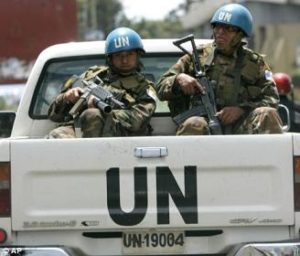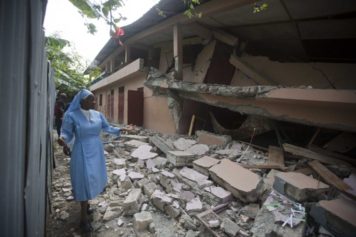
“Dialogue as means of agreement is a victory for Haiti,” Sandra Honore, head of the U.N. Stabilization Mission in Haiti (MINUSTAH) told the U.N. Security Council.
She hailed as an “unprecedented step in Haitian political history,” the launch of a dialogue among the executive, the parliament and political parties to discuss democratic governance, elections and amendment of the constitution.
She told the council that the resulting El Rancho Accord was formally signed on March 14 and stipulates that one election will be held this year, combining the long-delayed local, municipal and partial senatorial elections with those foreseen for the end of 2014, for a second third of the senate, and the entire chamber of deputies.
In addition, key provisions to be implemented within a ten-day timeframe are: amendment of the electoral law to confer the appropriate mandate upon the electoral council; replacement of up to one member of the electoral council by each of the three powers of the state; and a cabinet reshuffle to include individuals drawn from interested political parties.
Haiti’s cholera outbreak is still the worst in the world, Honore said as she briefed the U.N. Security Council about the U.N. peacekeeping mission in Haiti, crime rates, public health, and the cholera outbreak.
She told reporters “progress is being made” on the cholera epidemic. Of the 680,820 cases reported since 2010, only 6 percent arose last year – some 58,000 infections.
Honore said “the overall incidence of the disease has been reduced by half, and the fatality rate is below 1 percent, which is the alert threshold defined by the World Health Organization globally.”
But she told the Security Council, Haiti “still has the highest number of cholera cases in the world.” Health officials in Haiti say the epidemic has killed more than 8,000 people.
Scientific studies have shown that cholera was likely introduced in Haiti by U.N. peacekeepers from Nepal, where the disease is endemic.
The United Nations has claimed diplomatic immunity from class-action lawsuits being filed by lawyers representing Haitian survivors and relatives of the dead who say theU.N. peacekeepers contaminated Haiti’s principal river with cholera-infected human waste beginning in October 2010.
In 2012, the United Nations announced a $2.27 billion initiative to help eradicate cholera in Haiti.
Honore also told the Security Council that major crime was down in 2013, with homicides dropping 21 percent and kidnappings down 53 pe cent from a year before.
Source: bermana.com


